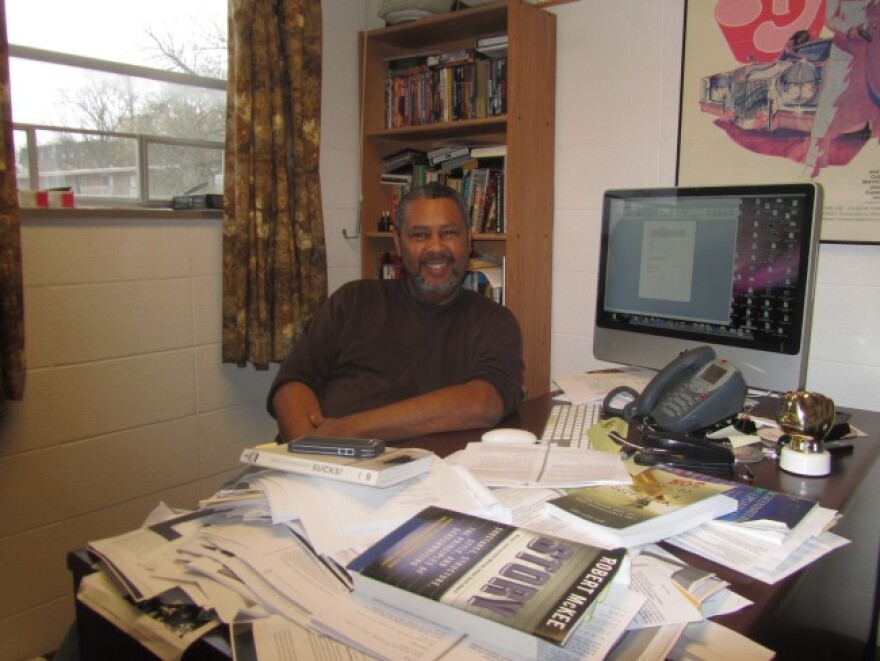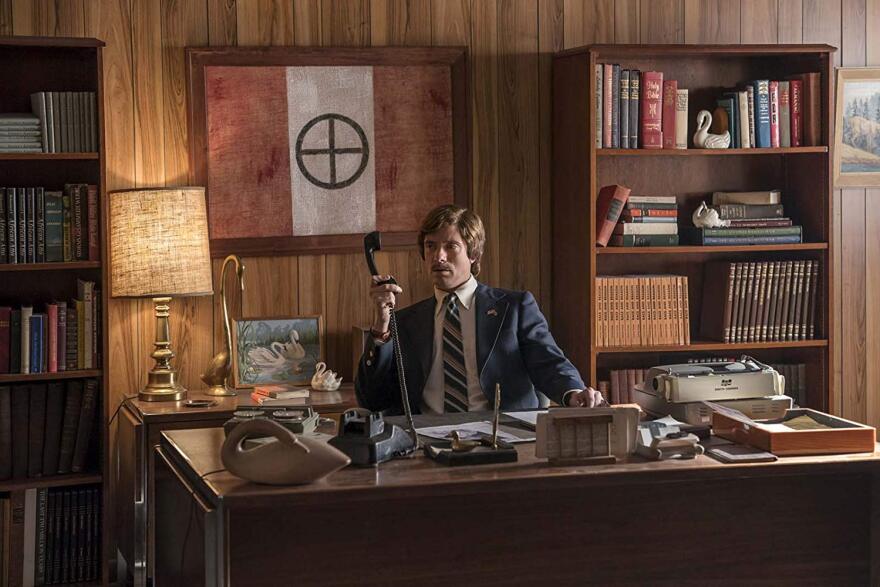Director Spike Lee’s "BlacKkKlansman," which won the Grand Prix at the Cannes Film Festival in May, is finally opening in theaters nationwide.
Lee's co-writer is University of Kansas film professor Kevin Willmott, who spoke with KCUR's Central Standard host Gina Kaufmann about the movie, which is based on a true story.
GINA KAUFMANN: The plot of "BlacKkKlansman" sounds like some kind of absurdist farce. It actually kind of reminds me of the Dave Chappelle skit about the black Klansman, who doesn't know he's black. But it's based on a true story.
KEVIN WILLMOTT: Yeah, you know, some things you just can't make up, right?
Ron Stallworth was the first black policeman in Colorado Springs, Colorado, in the 1970s. And he was like the Jackie Robinson of their police force, you know? So it was a little weird environment he kind of walked into. And then, on top of it, they put him in charge of monitoring all the radical groups that were in the area. And this was the '70s, so there's a lot of radical groups, right? (Laughs) I mean, you know, left-wing, right-wing, the whole bit.
KAUFMANN: He might have been able to go incognito in some crowds more easily than others.
WILLMOTT: Yes, and you see some of that in the film. So he's at his desk at the police station and he's looking in the newspaper. And he sees an ad in the local newspaper in Colorado Springs for the Klan. It's like: "We're looking for members, please join us and call this number."
He's young, he's very young. He's a rookie, the whole bit. So he calls the number and they fall in love with him.
KAUFMANN: And so, there are actually two Ron Stallworths in the movie, and I guess in real life. There's the real Ron Stallworth, played by John David Washington. He is (actor/director/producer) Denzel Washington's son. And then there's the white guy, who acts kind of like his stand-in when he has to meet the other Klansmen in person.
WILLMOTT: Adam Driver plays that part. Yeah, you know, the whole concept of two Ron Stallworths was a lot of fun to play with.
KAUFMANN: So the real Ron Stallworth, in real life, wrote a book about his experiences. And then you kind of turned the book into a movie. But how did you get involved in that project? Because it existed before you came on board.
WILLMOTT: Right, right. There had been a couple of other writers before Spike and I got involved.

And they approached Spike to direct the film (Jordan Peele did, right after "Get Out"). And we met with Jordan Peele, and he really wanted Spike to direct it, and he wanted us to re-write it. And the only note he gave us was just make it funny (laughs).
KAUFMANN: I mean, it is funny, but there's a lot that it addressses that is not funny. And that's true of most really good comedies.
WILLMOTT: Yes, indeed.
KAUFMANN: But it's still a fine line to walk.
WILLMOTT: No doubt about it. The thing I like to talk about, at least I tell my students, I believe it like this: When you deal with this kind of material, which is satire in a way — but in this case, it's true — you don't try to be funny. You just approach it seriously, and dramatically, and honestly, and in the context of that, you expose the absurdity.
KAUFMANN: Yeah, like the story has the humor in it, so you don't need to like ham it up.
WILLMOTT: Exactly. I mean, there are no jokes. It's just funny because when you're on the phone talking to the Klan and you're black and they love you, and you're having to say all this hateful stuff. And it's just crazy and funny and absurd in that sense.

KAUFMANN: I love the trailer, which is all I've had the opportunity to see so far. I cannot wait to see the movie. But, you know, I really hemmed and hawed about whether to play that clip (at the opening of the segment on Central Standard) and I wonder if my questions about it are things you wrestled with, too?
I mean, in the context of the story and the movie, that hateful screed delivered by (actor) John David Washington (playing police officer Ron Stallworth) is just clearly a joke and the joke is on (white supremacist and former KKK leader) David Duke. But the language he uses is stuff you hate to even put it out there, because you don't know who's listening, what they'll do with it.
WILLMOTT: Right. It's just a fact of American life that we're a racist country. We have to kind of accept that fact. And, I think, the sooner we accept it, the sooner these kind of folks will go away.
KAUFMANN: So does acknowledging and owning racism mean putting it out there?
WILLMOTT: We have to have an honest discussion about it. And certainly when you're talking about the Klan, or neo-Nazis, the alt-right, any of these hate groups, we have to be really honest about that. We have to be willing to be uncomfortable in those conversations, and we had to be willing to go to those places where that discomfort is just unfortunately a part of the reality.
KAUFMANN: Does looking at it through the lens of a true story that took place in 1978 put it in a new light for you?
WILLMOTT: Yeah, I mean, the challenge to the filmmaker is always: How do we make it entertaining? And one of the things Spike said was that he wanted it to really resonate to today. He didn't want to make it a period piece — and, unfortunately, that wasn't hard to do. And so there are all these connections to today.
Listen to the extended Central Standard conversation with Kevin Willmott here.
Laura Spencer is an arts reporter at KCUR 89.3. You can reach her on Twitter at @lauraspencer.





